While colorectal cancer is one of the most common cancers in the U.S., it is also known for being one of the few cancers that can be prevented. By scheduling regular colonoscopies, you can catch colorectal cancer in its earliest, most treatable stages. To learn more and schedule your colonoscopy, click here.
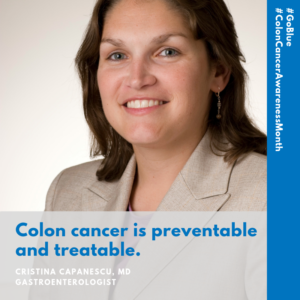 |
Colorectal cancer is the second leading cause of cancer death in the US, but doesn’t have to be. Colon cancer is preventable and treatable. If you are 50 or older and at average risk schedule your colonoscopy today.
Cristina Capanescu, MD |
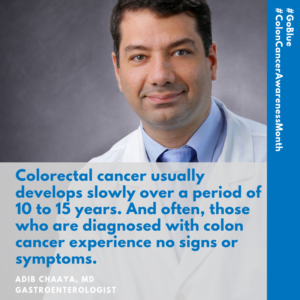 |
Colorectal cancer usually develops slowly over a period of 10 to 15 years. And often, those who are diagnosed with colon cancer experience no signs or symptoms. The best way to catch colon cancer early, when it is most treatable, and to even prevent cancer from occurring is through colonoscopy. If you are 50 or older and at average risk schedule your colonoscopy today.
Adib Chaaya, MD |
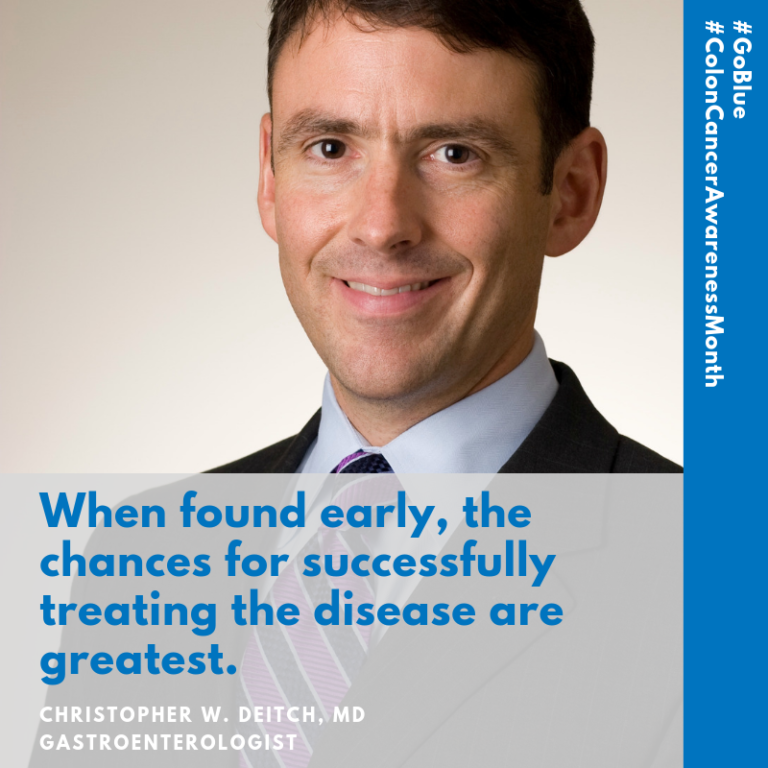 |
Colorectal cancer screening can catch abnormal cell changes before they become cancerous. When found early, the chances for successfully treating the disease are greatest. Talk to your doctor about the colon cancer screening options.
Christopher W. Deitch, MD |
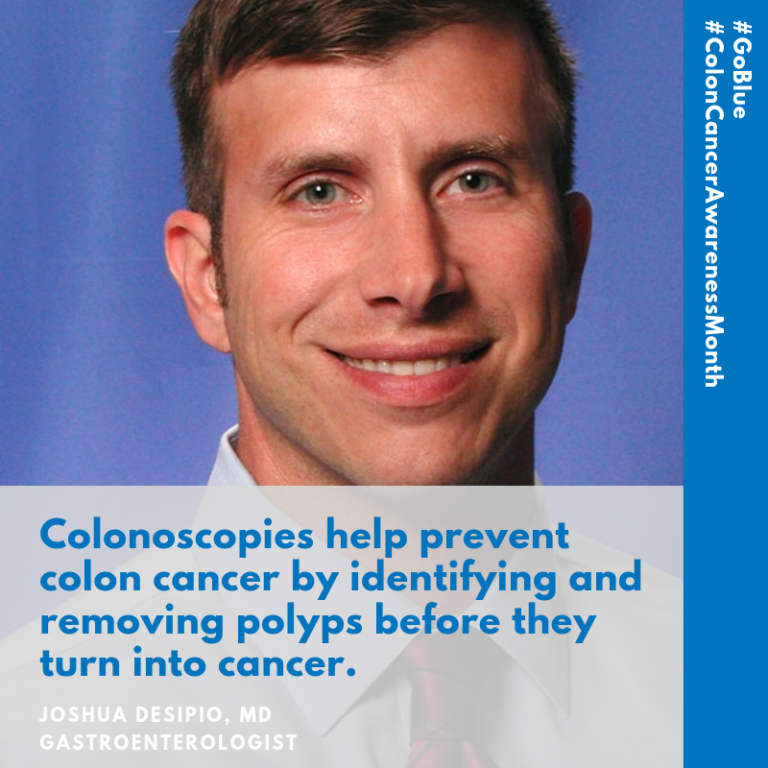 |
Colon cancer is cancer of the large intestine (colon), which is the final part of your digestive tract. Most cases of colon cancer begin as small, noncancerous clumps of cells called polyps. Over time some of these polyps can become colon cancers.
Polyps are generally small and produce few, if any, symptoms. For this reason, doctors recommend regular screening tests starting at age 50 for people at average risk. Colonoscopies help prevent colon cancer by identifying and removing polyps before they turn into cancer. Joshua DeSipio, MD |
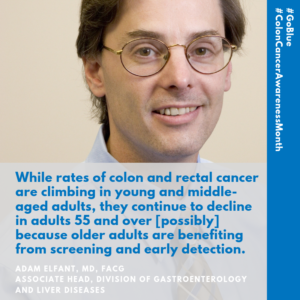 |
A recent study published in the Journal of the National Cancer Institute found that for people in their 20s and 30s, colon cancer rates increased about 1 percent to 2 percent per year from the mid-1980s to 2013. Comparing different generations at similar ages, the study found that people born around 1990 have double the risk of colon cancer as people born around 1950.
While rates of colon and rectal cancer are climbing in young and middle-aged adults, they continue to decline in adults 55 and over. The reasons are not known, although it could be partly because it’s older adults who are benefiting from screening and early detection, raising the question as to whether screening should start earlier. Adam Elfant, MD, FACG |
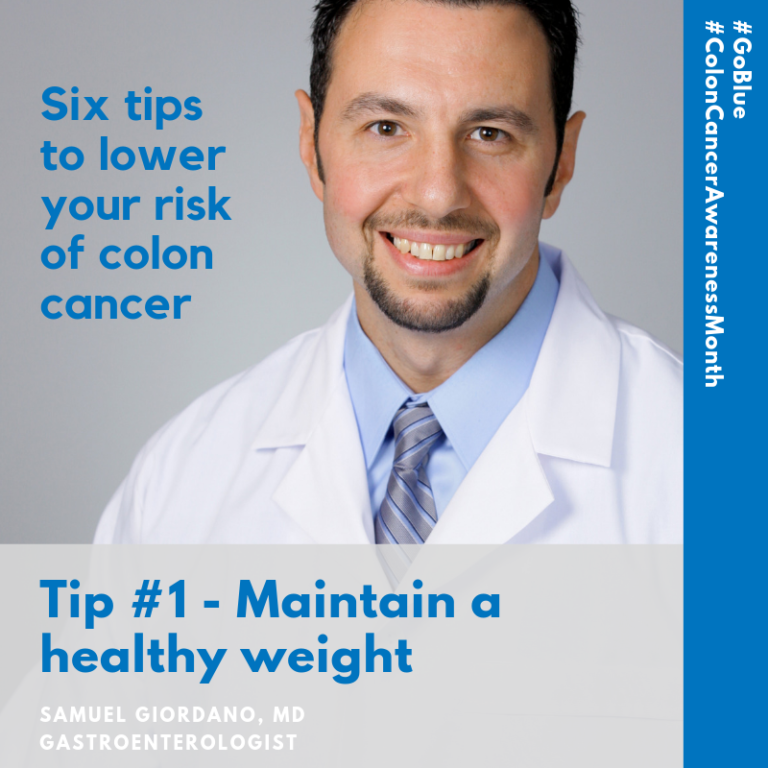 |
Six tips to lower your risk of colon cancer:
|
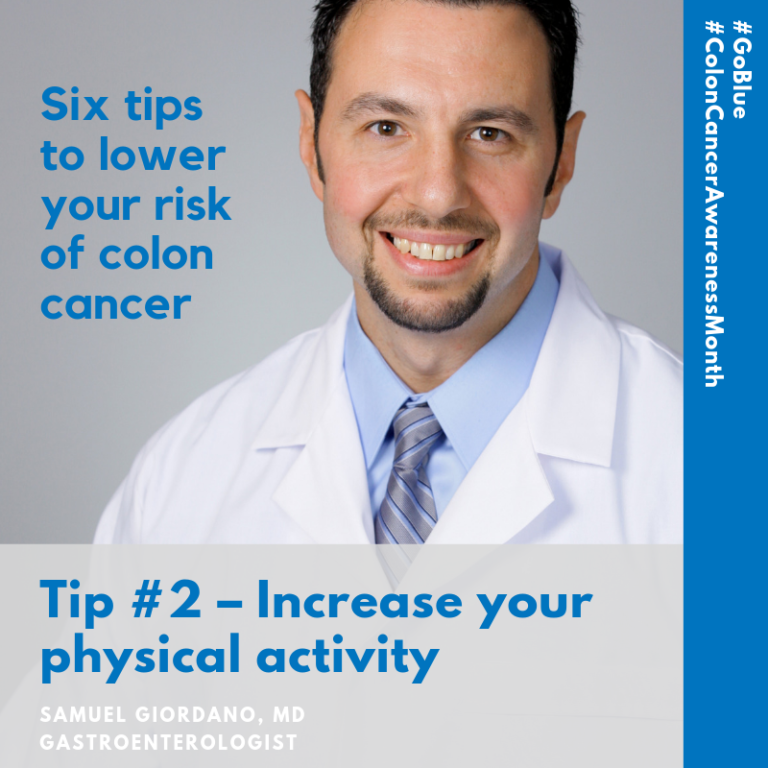 |
|
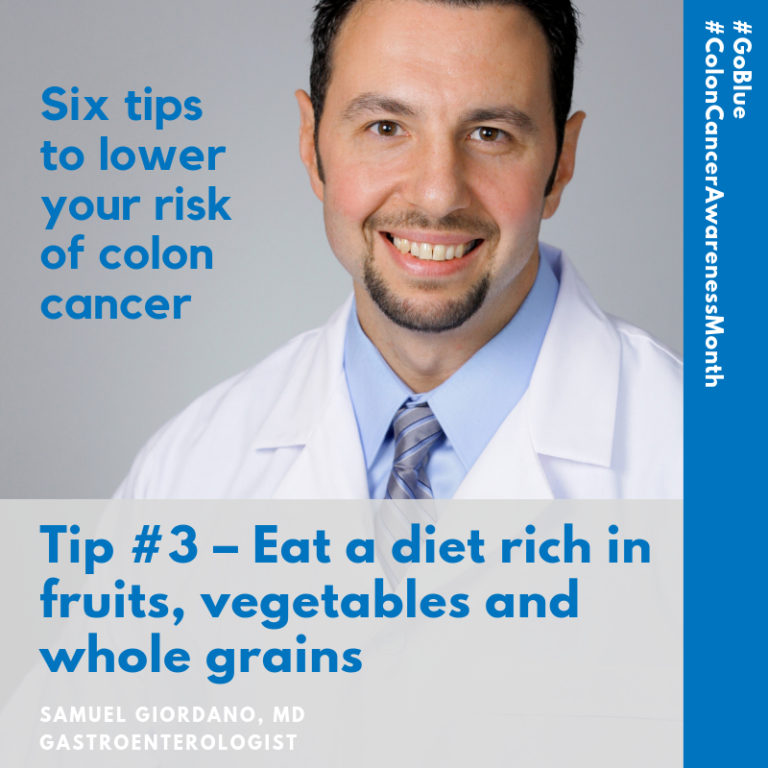 |
|
 |
|
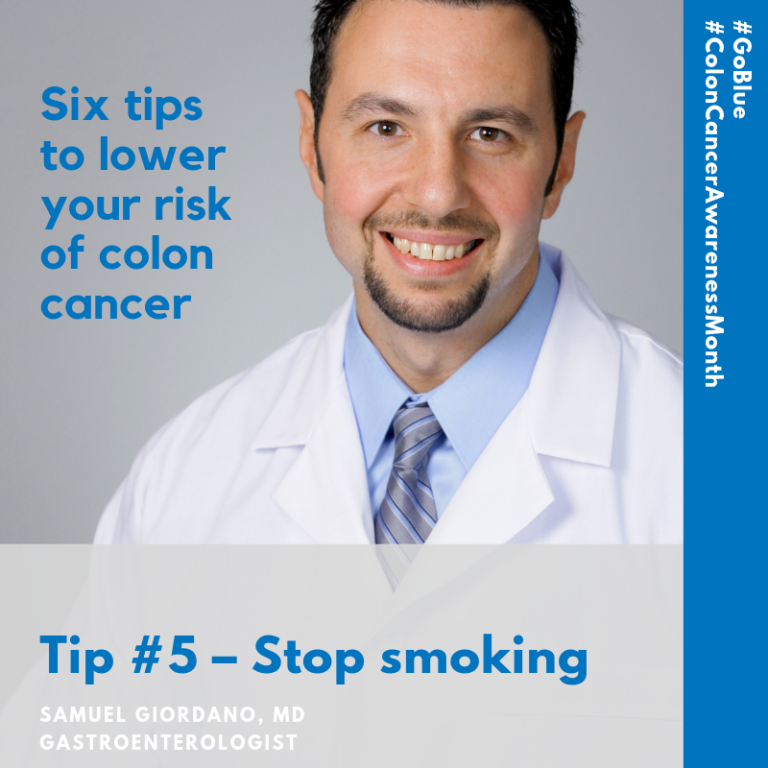 |
|
 |
Samuel Giordano, MD |
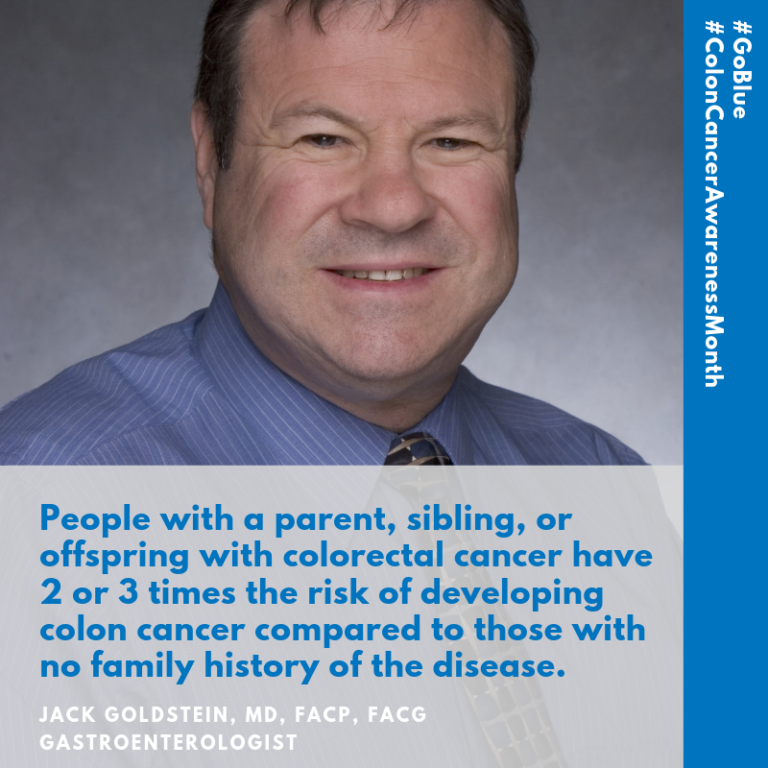 |
People with a parent, sibling, or offspring with colorectal cancer have 2 or 3 times the risk of developing colon cancer compared to those with no family history of the disease. Talk to your doctors about your risk and when you should start colon cancer screening.
Jack Goldstein, MD, FACP, FACG |
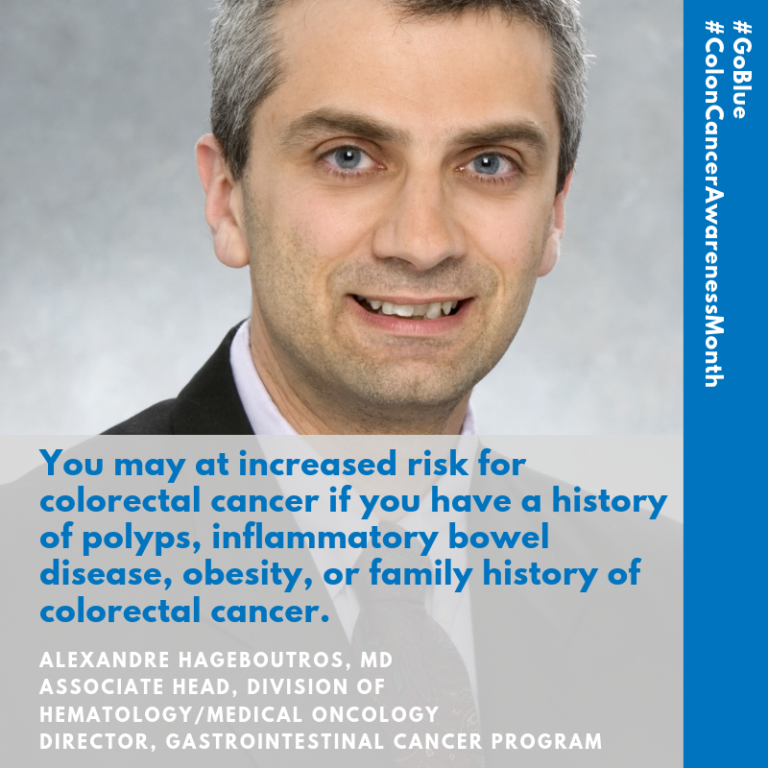 |
You may be at increased risk for colorectal cancer if you have a history of polyps, inflammatory bowel disease, obesity, or family history of colorectal cancer. Ask your doctor about your risk and if you are 50 or older schedule your colonoscopy today.
Alexandre Hageboutros, MD |
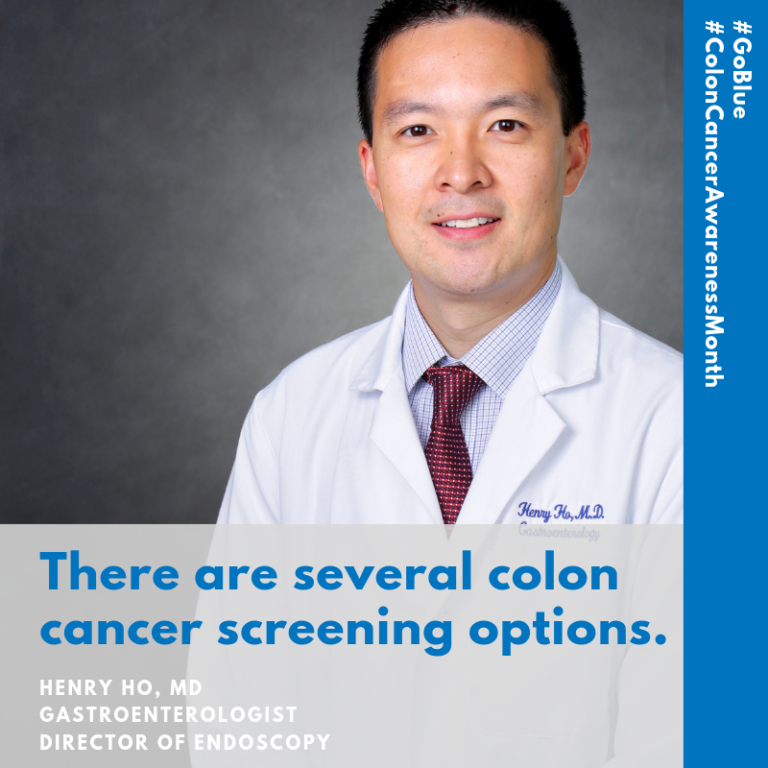 |
There are several colon cancer screening options. If you are at average risk and are age 50 or older follow one of the screening options below:
Henry Ho, MD |
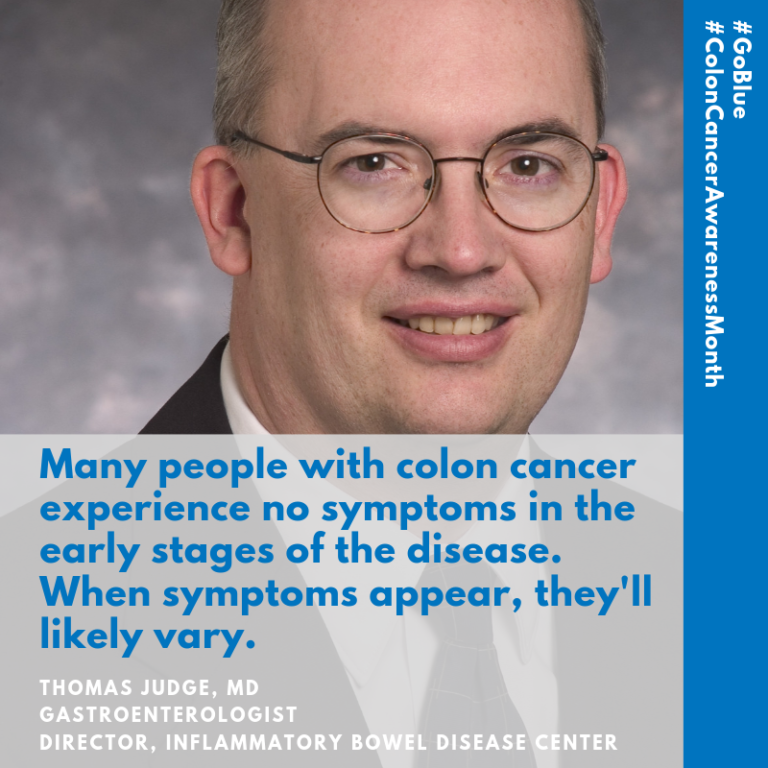 |
Many people with colon cancer experience no symptoms in the early stages of the disease. When symptoms appear, they’ll likely vary, depending on the cancer’s size and location in your large intestine. Some signs and symptoms of colon cancer include:
Thomas Judge, MD |
 |
While most people diagnosed with colon cancer have no family history of the disease, those with a family history should begin screening at an earlier age. Talk to your doctor about your risk for colon cancer and when you should begin screening.
The bottom line: Colon cancer screenings save lives. You know your body better than anyone else. Be in tune with it and speak to your doctor if you feel like something is off. For people over 50, screening would prevent at least a third of deaths from colon cancer. Still, screening rates remain stubbornly low. Michael Kwiatt, MD |
 |
In most cases, it’s not clear what causes colon cancer. Doctors know that colon cancer occurs when healthy cells in the colon develop changes in their genetic make-up.
When they are healthy, cells grow and divide in an orderly way to keep your body functioning normally. But when a cell’s DNA is damaged and becomes cancerous, cells continue to divide — even when new cells aren’t needed. As the cells accumulate, they form a tumor. With time, the cancer cells can grow to invade and destroy normal tissue nearby. And cancerous cells can travel to other parts of the body. Colon cancer screening is the best way to detect colon cancer early – when it is most treatable. In fact, colonoscopies can actually prevent cancers from occurring by removing polyps during the procedure before they have a chance to develop into cancer. Tara Lautenslager, MD |
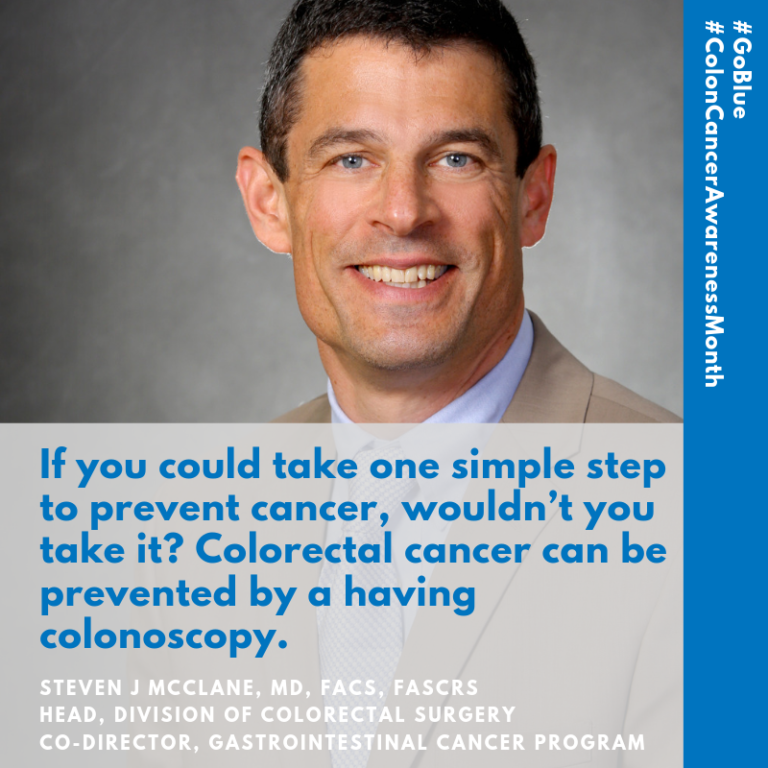 |
If you could take one simple step to prevent cancer, wouldn’t you take it? Colorectal cancer can be prevented by a having colonoscopy. During a colonoscopy doctors can remove polyps before they turn into colorectal cancer. If you are 50 or older and at average risk, schedule your colonoscopy today.
Steven J McClane, MD, FACS, FASCRS |
 |
Adults at increased or high risk are more likely to get colorectal cancer. This doesn’t mean you’ll definitely get cancer. But, you may need to start screening at an earlier age, get additional tests or be tested more often.
You’re at increased or high risk if you fall under one or more of these groups:
Cynthia Griech-McCleery, MD |
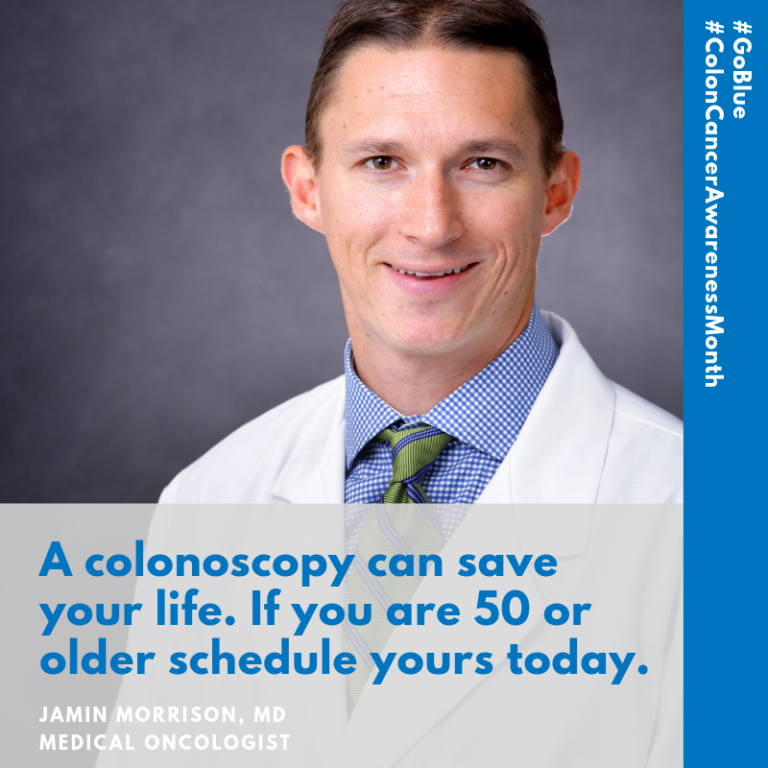 |
March is Colorectal Cancer Awareness Month. Colorectal cancer is cancer that occurs in the colon or rectum. It is the second leading cancer killer in the U.S., but it doesn’t have to be. A colonoscopy can save your life. If you are 50 or old schedule yours today.
Jamin Morrison, MD |
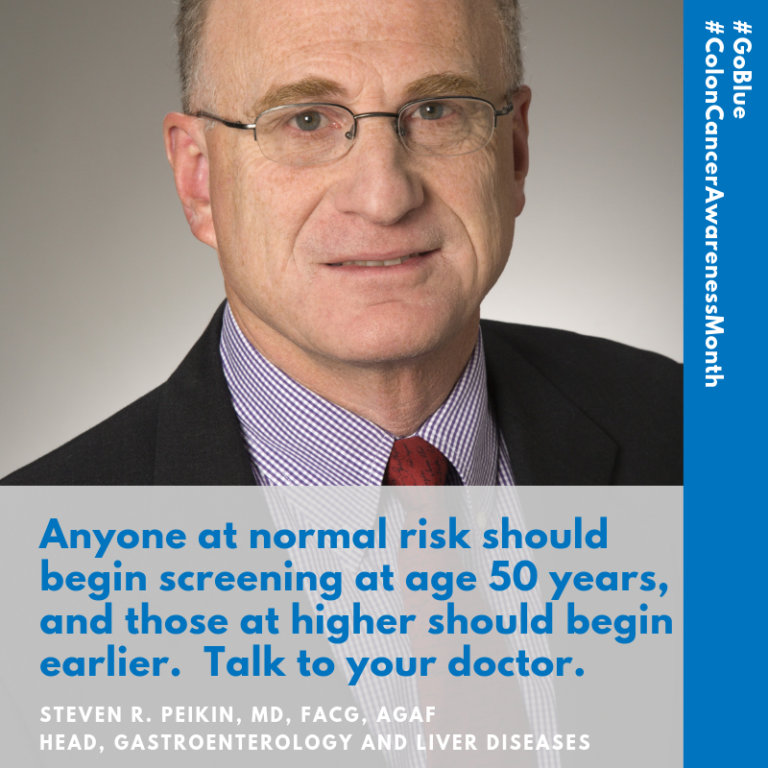 |
March is National Colorectal Cancer Awareness Month, a time bring attention on screening for colorectal cancer. By taking action through regular screenings, you can reduce your risk of colorectal cancer. A colonoscopy with removal of polyps can prevent colon cancer from happening. Anyone at normal risk should begin screening at age 50 years, and those at higher should begin earlier. Talk to your doctor about your risk and schedule your colonoscopy today.
Steven R. Peikin, MD, FACG, AGAF |
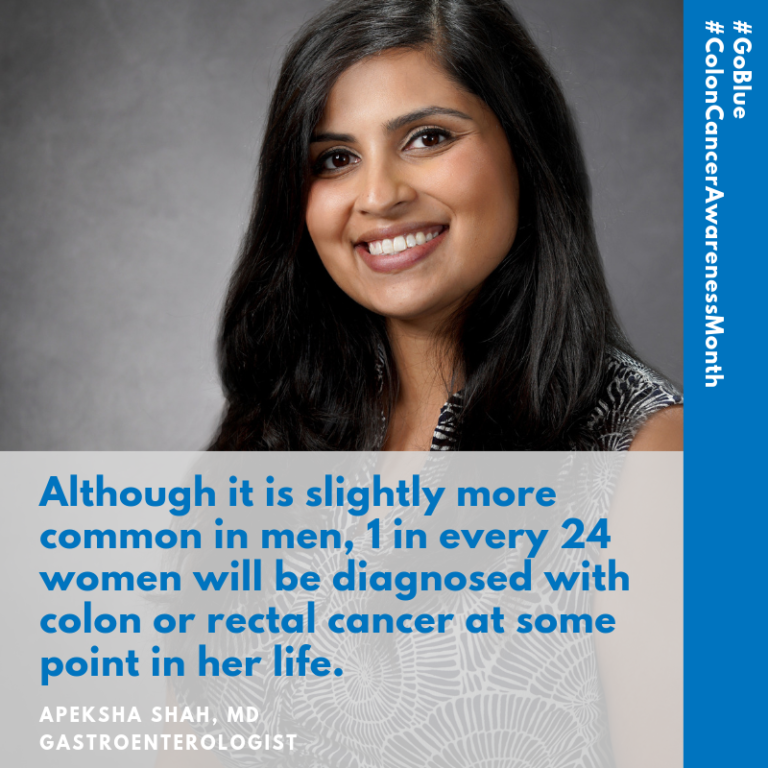 |
Colorectal cancer is one of the most common cancers in both men and women. Although it is slightly more common in men, 1 in every 24 women will be diagnosed with colon or rectal cancer at some point in her life. While some colon cancer symptoms in women may mirror other digestive problems, if you are experiencing unusual or heightened GI concerns, talk to your doctor about your risk and screening options, especially if cancer runs in your family.
Apeksha Shah, MD |
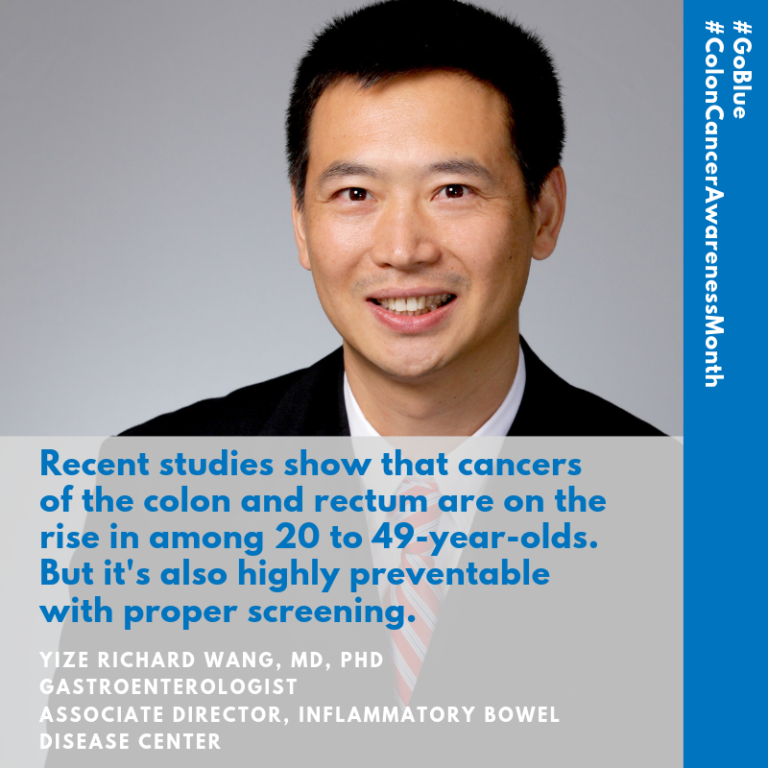 |
Recent studies show that cancers of the colon and rectum—are on the rise in among 20 to 49-year-olds. Colorectal cancer is the second leading cancer killer in the U.S., according to the Centers for Disease Control and Prevention. The National Cancer Institute estimates that 140,250 people will be diagnosed with colorectal cancer in 2018, and that 50,630 will die from it—but it’s also highly preventable with proper screening.
Yize Richard Wang, MD, PhD |
